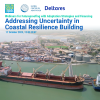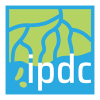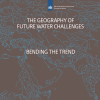Introduction
The impacts of climate change will mainly be felt in the water cycle. In most cases adaptation is water related. Water adaptation is therefore becoming increasingly important which also needs to be reflected on the policy agenda. Climate change is exacerbating an already existing water crisis. We therefore need to be talking not only about adaptation but also about resilience, which encompasses both development related and climate related policy issues. Many countries are putting in place national climate change policies to address the need for mitigation, adaptation and resilience. However, a great challenge is that in many cases this policy planning struggles to really translate to water policy. This is true for both high income and low-income countries. National level policies on water are needed for setting the agenda for how to address and implement water related resilience at local level. Providing a strong national political signal means strengthening the role of water in strategic decision making at the local level relevant for implementing DRR, adaptation and sustainable development. Resilient policies on water are needed in many different sectors, which requires mainstreaming: Mainstreaming water resilience at the national policy level, includes attention to water resilience in national plans, national programs and policies; and specific sector program/plans. It is important that these plans and policies reflect the fundamental elements that need to be in place to ensure resilient water policies, addressing climate change in the country’s development policy frameworks. (One challenge here is for example that many developing countries that National Adaptation Plans (NAP) are mainly used as a shopping list for donors.) The session departed from the existing water governance principles such as IWRM and principles provided by organizations such as OECD. How we can build on such principles to provide a sound international framework for national efforts supporting water resilience?
Key outcomes:
- Identification of elements which should be part of a strategy for resilient water policies.
- Identification of the benefits and challenges of some tools and methods to mainstream water resilience.
- Identification of an action agenda for the international community to support national level water resilience going forward.
Programme:
13.15-13.25 Introductory remarks by Peter Glas, Chair of the OECD Water Governance Initiative, The Delta Commission, The Netherlands.
13.25-14.05 Panel: Integrated policies and regulations, Facilitator: Torgny Holmgren, Executive Director, SIWI
- Understanding the risks across sectors for integrated water resilience, by Dr Johannes Cullman, Director, Cross-cutting coordination, water and cryosphere, World Meteorological Organisation WMO.
- Integrate flood and water scarcity management, by Dr Mark Smith, IWMI
- Enabling implementation of nature-based solutions, by Wetlands International CEO Jane Madgwick
- Link to mitigation - Water footprint for various mitigation measures. Synergies and tradeoffs, by Dr Aditi Mukherji, IWMI.
14.05-14.45 Panel: Experience in practice on the tools for mainstreaming water – specific cases and example, Facilitator: Torgny Holmgren, Executive Director, SIWI
- Strategic Flood management as method, by Dr Paul Sayers, Sayers and Partners
- Use of various tools for integrating water and adaptation into national development policy – brief examples available from Ghana, Zambia, Bolivia, Uganda, by Kidanemariam Tiruneh, Technical Advisor, Global Water Partnership (GWP)
- National policy and support for urban water resilience - organizational aspects, financing and risk assessment, the case of Gothenburg, by Dr Lena Blom, R&D manager, strategic advisor, Sustainable waste and water, City of Gothenburg, Adjunct Professor, Chalmers, Sweden
- ASEAN Climate Resilience Network tools and practices that contribute to the national climate policies and planning, by Imelda Bacudo, ASEAN, Climate Resilience Network
Further resources
- OECD Principles on Water Governance
- Flood Risk Management: A Strategic Approach
- Strategic planning for flood resilience: Four prerequisites
- Can Africa take the lead on Sustainable Water Infrastructure?
- A review of literature, debates and social media on resilience
- Strategic Framework for Water Security and Climate Resilient Development
- Water Security and Climate Resilient Development
- Climate change adaptation planning in Zambia
- WASH Climate Resilient Development: Risk assessments for WASH
- Strategic framework for WASH climate resilience
- Enhancing resilience of communities to climate change through catchment-based integrated management of water and related resourc












Trending Discussions
From around the site...
“Absolutely interested! I'll connect via email to discuss reviewing and enhancing the Economic Analysis of Climate...”
Adaptation-related events at COP28 (all available to follow/stream online)
“Please check out these adaptation-related events taking place at COP28 - all available online (some in person too if...”
Shining a light for biodiversity – four perspectives to the life that sustains us. Four hybrid sessions.
“30 November to 19 December 2023 - Four Sessions Introduction The SDC Cluster Green is happy to invite you to the...”